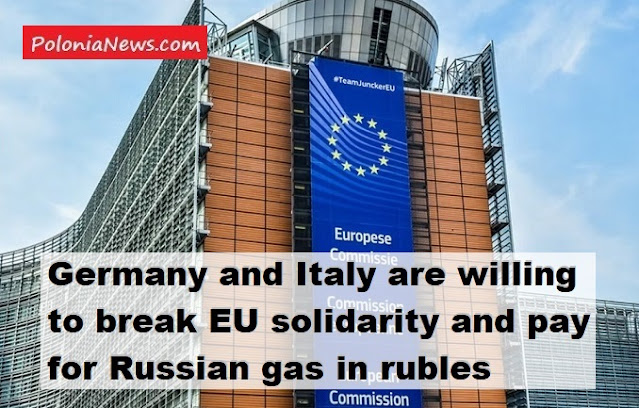There is still no agreement among the European Union countries regarding payments for Russian gas. Poland, Bulgaria, and Finland paid for their refusal to meet Russian demands by cutting off supplies. Some countries, such as Germany and Italy, want to break EU solidarity and are willing to pay in rubles for Russian gas. The European Commission has so far provided unclear solutions for this problem. According to information from the Polish Press Agency, this issue will be discussed at the European Union summit.
Over the weekend, Russia cut off gas supplies to Finland, which refused to pay for gas in Russian currency. Earlier, Moscow treated Poland and Bulgaria in the same way. At the same time, Reuters reported, Germany and Italy had an agreement with Brussels that they would meet Putin's decree and open ruble accounts to continue buying Russian gas.
These events further fuel the dispute over what is and what is not a breach of EU sanctions when paying for blue fuel.
For many days, the European Commission has been asked by reporters in Brussels about its position on this matter. It replies that paying in Russian currency for the raw material is a breach of sanctions, but at the same time emphasizes that it is up to EU capitals to enforce sanctions and opening an account in euros or dollars in Gazprom owned bank is not a breach of EU restrictions.
However, this stance opens the door to circumvent sanctions. As some diplomats point out, it is an invitation for EU capitals to come to an agreement with Russia on payments and deliveries by converting funds from euros to rubles. The EC's guidelines on this issue are deliberately ambiguous in order to enable further purchases of Russian gas.

